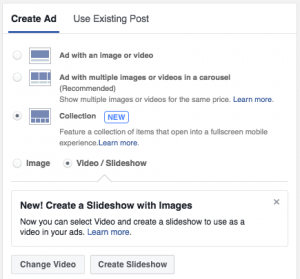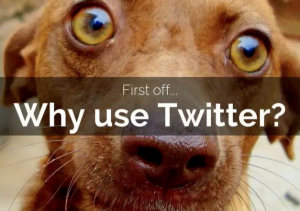
How long should a business blog post be?
It’s a common situation.A small business decides to start a blog, but is uncertain how long it should be. I get questions like…
Is 300 words enough?
I hear that longer posts are better.Is that true?
Is 500 words the right number?
The answer is not that simple. I tried to answer the question of how long a blog post should be on my own blog. But that covers the field, including all sorts of blogs for all sorts of purposes. Now let’s look specifically at how long a business blog should be.
Remember that a blog, even a business blog, is not the same as business writing, which last month I advised should be concise.
The first question to ask is whether your business is an information-heavy business. If it is, you will probably want longer blog posts, perhaps 700-1000 words, or even much longer. You will want to show potential customers that you have a vast store of knowledge and/or the capability to understand nuances and analyze information.
If your business could in any way be considered “consulting” in some form or other, it is not just the length of the post that counts. You’ll want your posts to be what we call “thought leadership” – articles that go beyond what everyone else is saying, that explore the reasons behind what everyone else is saying or that predict a future that others have not yet ventured to talk about.
If your business is not information-heavy, you have a number of other questions to ask:
Who are my customers, businesses, or consumers?
As a very vague rule of thumb, a B2B blog needs more substance than a B2C blog. When a business makes a purchase, there are often big financial implications, so the clients will take more time to make sure they are dealing with a credible supplier who knows what they are doing. Consumers, on the other hand, tend to want to read less.This is certainly not a “rule”, and there are plenty of exceptions. For instance:
- You sell fan paraphernalia from sports teams or movies or TV shows. You might want long articles on your blog, because the fans will take the time to read and the longer they stay, the more likely they are to buy.
- You sell supplies for dog-owners. You might want to be the trusted source of information that dog owners seek, because while they are on your website for information, they might also stick around to make a purchase. So long, detailed posts might be in order.
- You sell carpentry tools. You might want to post detailed how-to instructions for projects that can be done with your tools. You will want lots of photos and longer posts.
You need to understand your audience and what will motivate them.
What is the purpose of my blog? To build credibility? To attract leads? SEO?
This is the next question to ask. If the goal is to build credibility, you want posts that are long enough to show that you know exactly what you are doing. For a roofing contractor, that might not be the same length as for an environmental consultant, and that might not be the same as for a real estate agent.
- A roofing contractor might want really short roof-care tips.
- The environmental consultant will want detailed scientific, technical or policy-related thought-leadership articles.
- The real estate agent might want detailed home-care posts or lots of small neighborhood highlights post – or a combination of the two.
But perhaps your goal is to collect leads. If you have a blog with a lot of how-to articles, you might be able to drive interested traffic to those articles. The traffic will then divide into two camps.
1. People who really want to DIY and will take your information and run with it. Congratulations, you have just done an admirable community service.
2. People who aren’t so sure they are up to doing it by themselves, and will contact you for help. Congratulations, you have just won a shiny new customer.
These posts don’t have to be long, especially if they accompany a how-to video. You want to give enough information that a person could run with it. But you also want to leave enough question marks that the less courageous amongst your readers will want to call you for help. How long the post needs to be will depend on how complex the topic is.
If your purpose is SEO, you might want to consider a longer post.In recent years, longer content seems to be attracting more and better search engine rankings. But be careful not to fall into the quantity–over-quality trap.I really well-written, useful and unique short blog post will still attract more inbound links and social shares than a longer poorly-written, me-too post. And those links and shares are what tells the search engines that your content is considered awesome by readers.
So how long does a page have to be to ran in the search engines? A study conducted in 2012 found that the average length of a page ranking in the top 10 positions was over 2000 words. For the top three positions, it is over 2400 words. That is the average length. For every page in the top three spots with 1500 words, there is another page with 3500 words.
One caveat is that this does include all visible text on the pages, including sidebar text. But it still means that if SEO is your prime motivation for blogging, you should be writing posts of at least 1500 words – which is much more than the 500 word minimum that the SEO world was all excited about two or three years back.It isn’t any more. There is a good summary of the magic numbers assembled by Amanda Dodge two years ago.
What’s my budget? If you are a struggling start-up, this is a legitimate question.
This is a legitimate question. Let’s suppose you have decide to blog twice a week and you’ve budgeted a certain amount. That might cover the job if you need 300-word posts written, but might stretch it if you need 500 word posts written. But what if an analysis of your business, your target market and your blog’s purpose leads to the conclusion that 1500-word posts are ideal.
First, take quality over quantity. I would suggest posting less frequently, to get the substantive posts you want. I might also see if that 1500-word target could be brought down.
Then, make an adequate budget. If blogging is a vital part of your marketing program, make sure to allocate enough money to do it well. Ideally, you want to blog at least once a week, but if you cannot move on budget, it would be better to publish and promote two amazing posts per month, than 8 so-so posts per month.
That is just my opinion, of course, based on the best available data and my own experience as a writer, blogger and blog post promoter.I would sacrifice frequency for quality, including the length and depth of a post. But nothing is written in stone when it comes to blogging, and occasionally something counter-intuitive works, too.
So how long should your blog posts be? I can’t answer that without knowing the details of your business, your customers and your marketing plans. But in a more general fashion, this post arms you with the right questions to ask.
Image via Shutterstock
(174)









